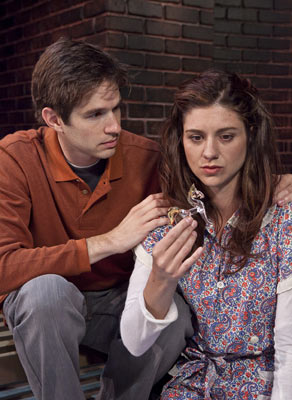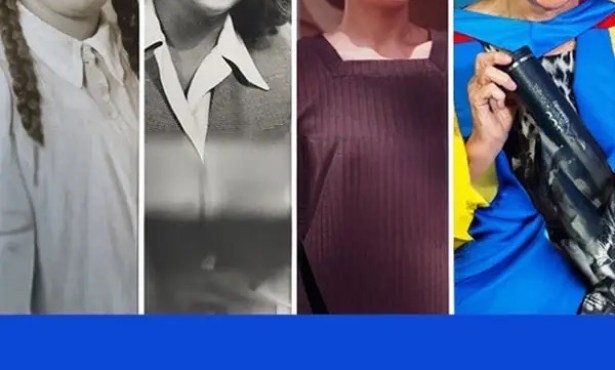The Glass Menagerie at Ensemble Theatre Company
Jonathan Fox Directs Tennessee Williams’ Classic Drama
Tennessee Williams set the standard for post-war American drama. His classic plays do everything great theater is supposed to, including opening one’s eyes and heart to the terrible tragedy and unlimited pathos at the core of human existence. Jonathan Fox, artistic director of the Ensemble Theatre Company, has directed three major productions of Williams’s work in as many years, but his version of The Glass Menagerie, which opens today, April 8, is the first of these to be seen in Santa Barbara. The play stars Joe Delafield as the narrator and protagonist, Tom Wingfield; Sara Botsford as his mother, Amanda; Erin Pineda as Tom’s shy sister, Laura; and Joel J. Gelman as Jim the Gentleman Caller. I spoke with Fox last week about his approach to directing this classic drama.

You are a restless interpreter of plays, always looking for new angles. How has that affected your approach to this show? You have to be a restless interpreter with Williams because his work is susceptible to clichéd productions. I don’t think the character of Amanda Wingfield [the overprotective single mother of Tom and Laura] is as iconic as Blanche DuBois [the faded Southern belle lead in A Streetcar Named Desire], but she has been done a lot of times in a lot of ways, including by drag queens.
In other words, there’s a received idea of this play that you’d like to avoid. What makes The Glass Menagerie different from A Streetcar Named Desire? The Glass Menagerie is more imagistic than Streetcar. Williams calls it a memory play, and there’s blurriness around the edges as a result. With Streetcar, you have something that’s at once more expansive and tighter in focus. Of course, Streetcar has its own forms of expressionism—a scene will be moving along, and suddenly Blanche will have this tremendous monologue about sex and death, for instance—but overall The Glass Menagerie is more about these moments of lyrical reflection.
How has that difference informed your interpretation? Even though it is a memory play, we’re aiming for something less gauzy—a more gritty and realistic version of the St. Louis tenement life that the play describes. In my understanding of it, there are two glass menageries. One is the collection of glass figurines owned by Laura Wingfield, and the other is the menagerie of the people in the show, the menagerie of life. There’s an exchange in the play between Amanda and Tom where she accuses him of being like an animal because he has given in to his instincts, and he replies that animals have instincts, and so do we. The glass menagerie is the microcosm and the macrocosm of the play, its metaphor for life.
What was the catalyst for this idea of how the play should be done? When you see or read any classic work again, it changes for you because you are encountering it at a different time in your life. I first worked on The Glass Menagerie 15 years ago, and coming back to it, I saw many more connections to my own life, and I felt the dilemma faced by Tom very strongly. My father also died when I was young, and emotionally, I was the man of the house, too. Women who lose their husbands do sometimes use their sons as surrogates, and this time around, I was able to see that I had been one of them. It was a powerful experience.
What is it about Tennessee Williams that makes him so great? We tend to forget this because we have co-opted so much of his dramaturgy in the years since then, but Williams was very experimental. He really challenged the fundamental conventions of theater and society, and he did so at a crucial moment in American history, the immediate aftermath of the Second World War. He has a unique and beautiful way with language, something he shares with all the truly great classic playwrights. He also has a sense of humor, which is something that a director never forgets because it’s so present in the scripts.
4•1•1
The Glass Menagerie runs April 8-May 2 at Ensemble’s Alhecama Theatre. For tickets and information, visit ensembletheatre.com/nowplaying.php or call 965-5400.



